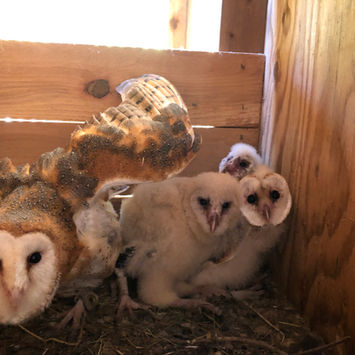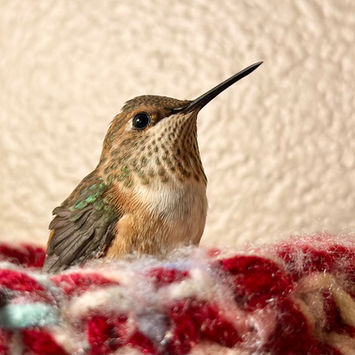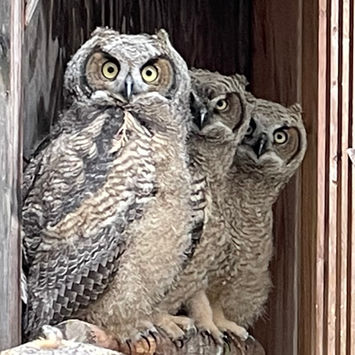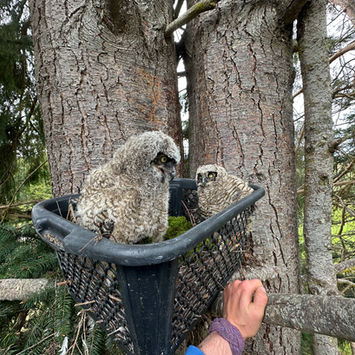top of page

WELCOME TO
DISCOVERY BAY
WILD BIRD RESCUE!
An Every Bird Place
Around the Center

Gandalf is one of our Great Horned Owl educational ambassadors. We provide numerous educational presentations throughout the year. When Gandalf isn't out teaching he's at home being a surrogate dad to orphaned baby great horned owlets.

After rehabilitation we release every bird we can back to the wild! This Bald Eagle was one of our many rescue and release success stories!

We take in a lot of orphaned baby birds at DBWBR. These baby Barn Owls were adopted and raised by our foster Barn Owl parents.

Birds like this baby hummingbird require very specific care. We have years of training and experience and we know the proper way to care for many different species of birds we rescue. Please don't try to care for them yourself, call us!

This Bald Eagle was involved in a fight and had talons through his head, both on top, and in back, they pierced the roof of his mouth. Another talon went through the lower jaw and came out right above the eye and severely damaged the lid and tissue around the eye. Another talon went into his elbow joint. After a year of intense medical treatment and rehabilitation, he was released back into the wild! The work we do is tireless, and we do it out of a responsibility to help these birds.

Our rewards for all of our hard work come when we get to see these majestic birds enjoying their freedom once again. What we do takes a lot of time, and money, and we depend upon generous donations to continue our mission. You can help by adopting a bird or making a donation. Thank you.

Highly Pathogenic Avian Influenza (HPAI) is a severe, contagious viral disease affecting birds, caused by certain strains of the avian influenza virus (such as H5N1). It can lead to high death rates in birds. Pictured you see Joseph removing cackling geese from a retention pond to remove infected birds from the field. If you see a bird with neurological signs like seizures, vomiting. lack of coordination, or death you can call us for further instruction. 360-379-0802 or go to the WDFW website at https://wdfw.wa.gov/species-habitats/diseases/bird-flu Although risk to humans is low you should always protect yourself. For more information-
agr.wa.gov/birdflu
wdfw.wa.gov/bird-flu
agr.wa.gov/birdflu
wdfw.wa.gov/bird-flu

We recently received a great horned owlet from the PT area that was found on a busy road. After keeping overnight to hydrate and make sure it was healthy we decided to look for the nest it came from for re-nesting. We also had a second owlet that had come from our friends at Raindancer Wild Bird Rescue the day before whose nest location was unknown. It came to be placed with our surrogate pair of great horned owls to raise. Next day, Joseph was able to find the nest of the bird from PT and we "hatched" a plan to re-nest both birds. After scoping out the condition of the parental nest we decided it needed to be reinforced. Up the fir tree Joseph went with a laundry basket to contain the original nest of sticks and some moss and then attached that to the tree 40 feet up where they had originally nested. Once that was secure, back up the tree Joseph went with a backpack full of owlets. He was able to successfully place them in the nest while a sibling watched from a nearby tree. We also saw a parent fly by so we felt confident this was a good situation. Next day, we were able to check on the whole family who were all there together.
We are not looking for volunteers currently. We thank you for your interest and welcome callers who have any questions.
bottom of page



